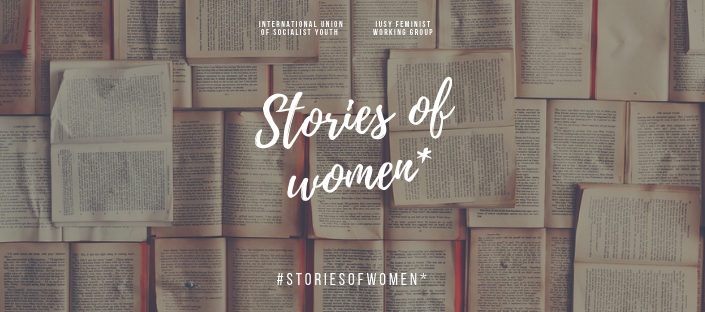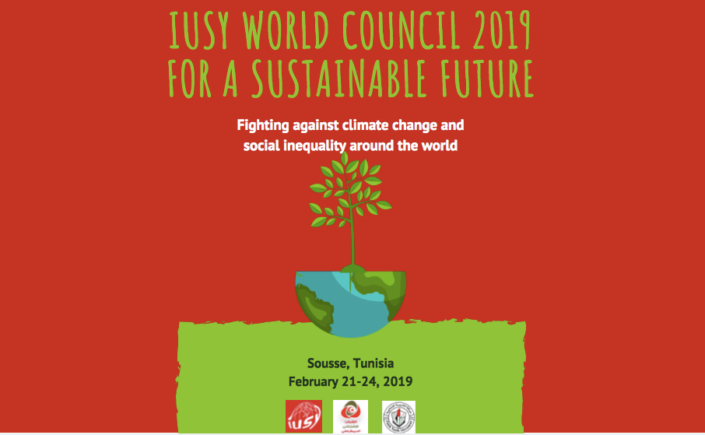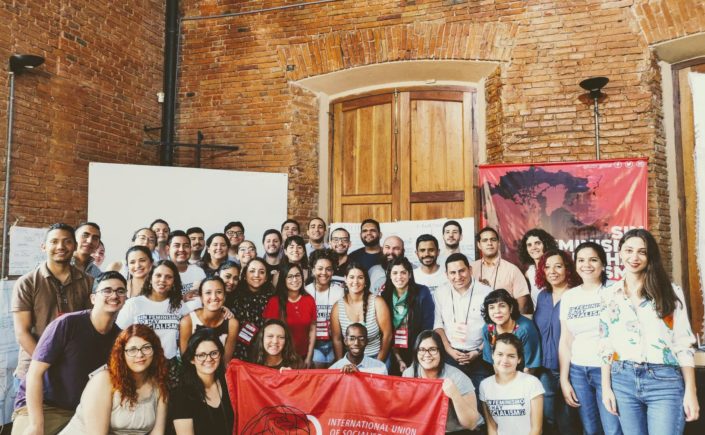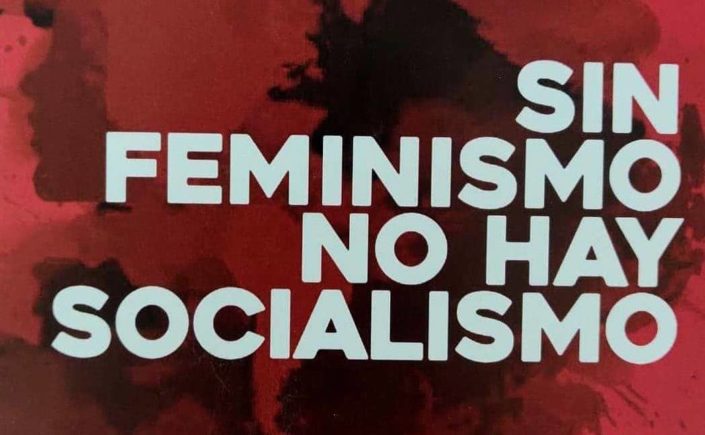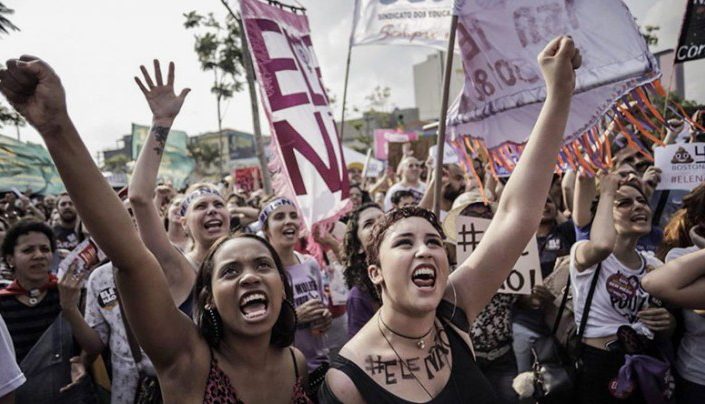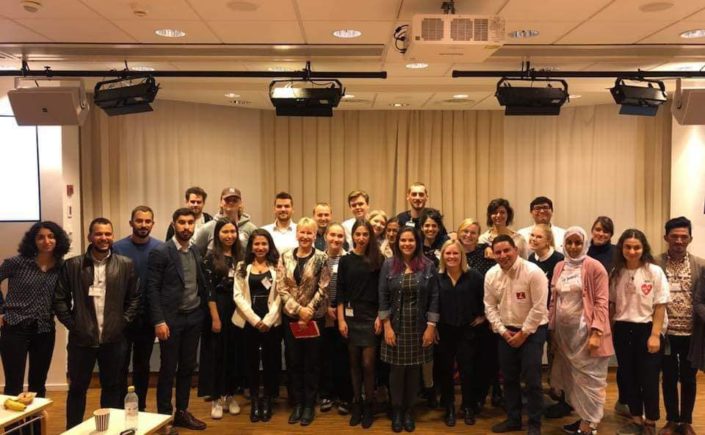I dreaded writing this story because of the wounds of abuse become fresh and I wish the strength I have now, I had back then.
I am a 25 year old Swazi woman, a daughter to a woman who was abused by her husband whom I had to call my father no matter the painful scars that he embedded on my mom. This is what at first made abuse normal to me because my mother would always make an excuse on behalf of my father whenever he beat her. It was a long cycle of abuse with some days being the days where my father would make my mother feel so special like a queen before the storm broke; she was bruised and covered in blood. I came to accept that men can beat women up in the name of love and it was fine.
I started dating at age 17 after completing school due to the strictness of my parents who later separated as my mother had enough of the abuse. I met him at church during youth camp and he was every girl’s dream boyfriend at church, but he only had eyes for me. I think I appreciated being the chosen one for a while, but it was too good to be true. He was caring, really caring that he wanted to know everything about me; my whereabouts, friends, hangouts and sometimes who was calling on the phone. At first it felt sweet and caring and I enjoyed his attention. He loved knowing what time I would knock off work, so he could drop me off at home and I felt that it was his way of showing support.
I felt he loved me too much to let me travel by public transport. But he sometimes never asked but just pounced on me and did not negotiate whether I had plans to travel with friends or not. He never wanted to take NO for an answer and felt like as a couple we should be open enough to share each other’s phones as a sign of honesty and trust. I believed him and gave in even though I did not understand the significance of that. He would bring the phone in the middle of the night claiming men were calling and he would threaten to beat me up.
Threats escalated to beatings
It started off as threats and then one day it was executed. It was a night out with friends at a colleague’s house, I forgot to tell him my plans for the night and co-incidentally we met as we went out to shop for snacks for the house party. He pretended to be understanding as one of my friends explained where we were going. He pulled me away from the crowd, so we could talk and before I could explain he slapped me so hard, I kissed the ground. My lips brushed through the soil and I wished to scream but it was so surreal, my lips felt numb then a hard knock hit my buttocks. I screamed, suddenly I heard him groan in anger and then he reached down for my hand and pulled me up to face him. I cried in shock and screamed but tears in his face made me stop. He was crying too and that touched my heart. He apologised teary and as much as I was in pain, it didn’t feel right to cry when I saw the level of regret he had written all over his face. He got away with it as I ended up blaming myself for making him angry thus leading to the beating.
The beatings started to become a pattern. He would beat me up for not taking his calls when I was busy at work, commenting on someone’s status with a ‘dear’, dressing up in clothes that he felt were revealing. Everything I did was wrong in his eyes. All arguments ended up with me lying on the floor screaming hysterically. I had devised a routine plan to fake seizures when he beat me up, so he could freak out and stop. I could not tell anyone about the abuse, not even the ladies I stayed with because it would have been hard for them to believe it. He was the “ideal man” in the eyes of others, always to the rescue when there was a need. I could not even bring myself to explain the bruises that were all over my body, so I hid away and cried myself to sleep.
Then one fateful day, this is still hard for me to admit. I realised I was pregnant a few days before my birthday, he had planned for everything in relation to my birthday party. I was excited about everything until I discovered that I was pregnant. He bought me a dress which was too tight, and I doubted if my growing tummy would not be too prominent in the dress. The day of my birthday party came. I failed to wear the dress he bought me, but I opted for pants and a flare top. Mr. party had to come fetch Miss party and as he came through the door I felt his shoulders drop and a fist clench on his hands. He smiled coyly and asked to be left alone then all hell broke loose. I was kicked, bashed and stamped upon. I played the seizure trick but that moment it did not help, he forced me into the dress like a corpse and carried me into the car.
The journey was rough, but one thing was for sure it was not to the venue for my birthday party. He called my cousin to apologise that I couldn’t make it because he had to rush me to hospital, but the road had no hospital sign. The pain was unbearable, and I passed out. I regained my consciousness to his loud shouting, but I couldn’t make sense of any words. He finally stopped the car. It was a bushy place as I could see pineapple plantations around. He opened the door for me and helped me out and then the beating continued. I tried explaining that the dress was too tight and I was not going to be comfortable. But he maintained that I did not wear it because I wanted to wear clothes bought by my other boyfriends. I was kicked, forced to apologise and beaten for saying sorry too soft or with arrogance.
The last kick landed on my abdomen before I screamed out that I am pregnant. But it was too late as I had already started bleeding, the dress was covered in blood in the lower extremities and he acted too quickly. He finally took me to hospital. The baby was no more. My heart was aching so hard I couldn’t speak. Nurses told me that they could not give me care because I had to do a police report, but I told them I was mugged by unknown people. Due to fear of hypovolemic shock the nurses attended to me. I woke up in the morning to the sad confirmation that I miscarried and had broken a rib. As I lay in the post operation bed, I made up my mind that I will vanish either by death or by choice in this world. I decided to start my life anew.
The cycle had to end
Upon release from hospital I contacted my uncle and asked to recover in one of his apartments where I was sure my boyfriend would never find me. The cycle had to end. I was not about to let my life end with the cycle of abuse. I disappeared three months of no cellphones, jobless, but the support my family, gave me was my source of strength. At first, I could not tell anyone what had happened but as the wounds were healing I started to talk. I regained courage as I talked and shared my story of abuse, I had visible and invisible scars, but all hurt the same.
I started to share my story with other girls in my community; it was not easy the tears would well in, as the memories felt new and fresh. Some would show empathy and others would tell me to my face that when a man beat you up it was a sign of true love and commitment. I didn’t blame them; society had made us believe that it was a norm for a woman to suffer in the hands of the one person that they love. After all, culturally a woman was thought of to be part of the children in a household and children can be beaten so it was justified if a man beat his wife. I was made to experience these harsh beatings of my mother and she endured them in the name of refusing to be called a marriage defect in the community, so I grew up knowing it is fine to be beaten.
Currently, I have learnt to note the signs of an abusive man way before he even decides to lay a finger on me. I refuse to be controlled by any man, all issues are discussed, and an agreement is made. If he fails to do that then we are better off separated. A man cannot control my movements or me, he must understand that everything comes to the discussion table. I refuse to hear someone play around with words like ‘I’ll beat you up or I could kill you’. It shows me he has potential of being abusive.
There are boys in these abusive households, they learn the norm and adapt it and take it as good practice because they see it done continuously and no action taken. Is this not the reason today our boyfriends opt to kill us because they feel like beating us only has made us used to their beating so better death. I may never have children because of the abuse but I refuse to see any more women be barren in the name of love or be made statistics of intimate partner violence. When will our culture stop protecting men in the name of Godly given powers that they should treat women as children which makes them feel right to hit them as method of correction. More and more women are being killed in the name of love. But this can’t be a November cry. Authorities only notice that women deserve to be protected when we commemorate the 16 days of activism. Do women only die during the November and December era? Was I abused only in the November and December era? The answer is NO.
Abuse is not seasonal, it is happening everyday within different households and more and more perpetrators are being groomed as they watch abuse being normalized within the society. Why can’t we uproot the normalized abuse in the minds of young boys and empowering the girls that they can break free from the cycle of abuse. However, this does not mean we are not noting the number of men that suffer abuse in the hands of women, that also must be condemned in the same manner that abuse against women. As a woman who has suffered abuse, I refuse to be quiet in the name of being in love. I want more women to speak out and act.
By a survivor
Swaziland is Africa’s last absolute monarchy led by polygamous King Mswati. Political parties have remained banned in Swaziland since 1973. A total disregard of human rights and the crackdown of human rights defenders who call for multiparty democracy is endemic in sustaining the royal dictatorship.
Swaziland is a highly patriarchal society where abuse of women is systemic. The problem of gender-based violence is deep seated. Sad statistics show that, 1 in 3 females have experienced some form of sexual abuse by age 18 years, and 48 per cent of women report to have experienced some form of sexual violence in their lifetime. The story of Siviwe is not an isolated one. Many women are facing abuse daily and unfortunately some lose their lives. The struggle for democracy in Swaziland cannot be separated from the struggle for gender equality.

